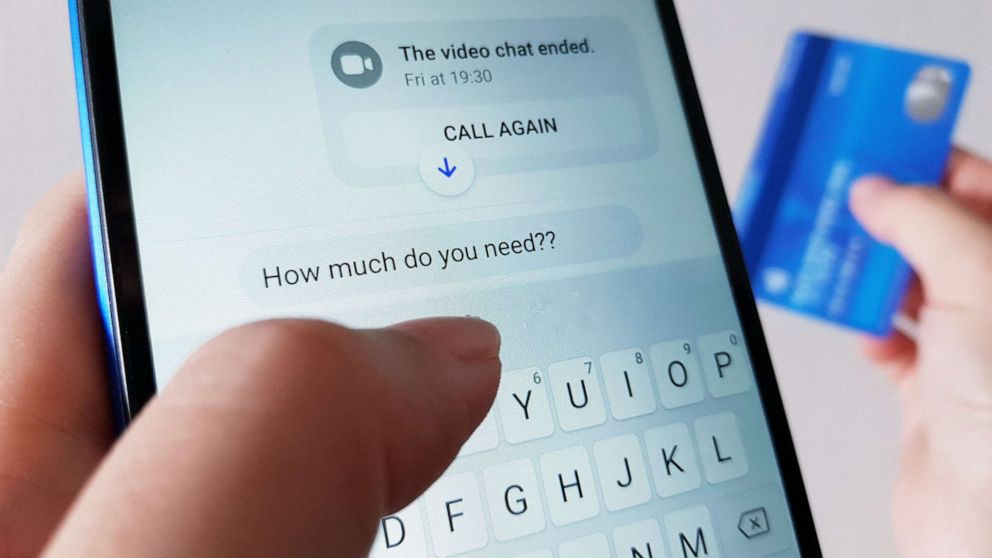


Romance scammers raked in big bucks in 2022, deceiving almost 70,000 people out of $1.3 billion, according to a new report from the Federal Trade Commission.
According to the FBI, romance scammers create an online identity to gain a person's trust and affection and then use that relationship to steal or manipulate them.
Last year, romance scammers stole from tens of thousands of victims with a median reported loss of $4,400 each, the FTC said.
MORE: Woman allegedly steals $2.8 million from Holocaust survivor in romance scamRomance scammers use dating apps to target people, but are more likely to send people a private message to establish a relationship, according to the FTC.
Approximately 40% of people who lost money in 2022 said scammers contacted them on social media, while 19% said it began on an app or a website, according to the FTC. The FTC noted that popular messaging apps such as Google Chat, Telegram and WhatsApp were used to continue conversations.
According to the FTC report, romance scammers often use specific lies to scam people.
Approximately 24% of romance scammers tell potential victims that they or a loved one is "sick, hurt, or in jail;" 18% offer to teach how to invest; another 18% say they're in the military; and 12% use lies surrounding getting married, according to the FTC.
The FTC said that last year 24% of people reported paying scammers using gift cards, 19% paid in cryptocurrency, and 14% paid using a bank wire transfer or payment.
Over 60% of reported losses stemmed from bank wire transfers and cryptocurrency payments, the latter making up the largest reported dollar amount in 2022, according to the FTC.
Last month, a Florida woman was arrested for planning a yearslong romance scam that defrauded an 87-year-old Holocaust survivor.
According to federal prosecutors, Peaches Stergo stole $2.8 million over four years from the victim, whom she met on a dating website.
"Stergo deceived an 87-year-old Holocaust survivor, maliciously draining his life savings so she could become a millionaire through fraud," U.S. Attorney Damian Williams said in a statement.
MORE: Video FBI warns of rise in costly technical support scamsThe FTC does provide ways to spot a romance scammer in action:
• Nobody legit will ever ask you to help—or insist that you invest— by sending cryptocurrency, giving the numbers on a gift card, or wiring money. Anyone who does is a scammer.
• If someone tells you to send money to receive a package, you can bet it's a scam.
• Talk to friends or family about a new love interest and pay attention if they're concerned.
• Try a reverse image search of profile pictures. If the details don't match up, it's a scam.